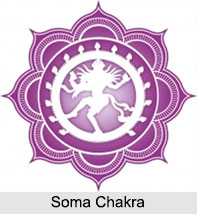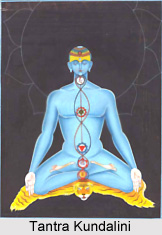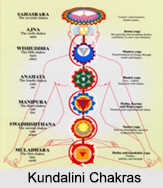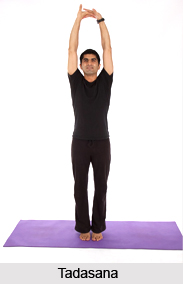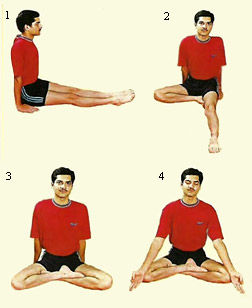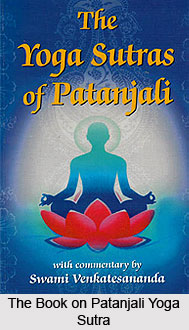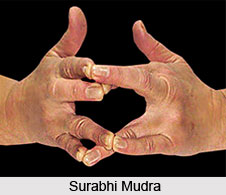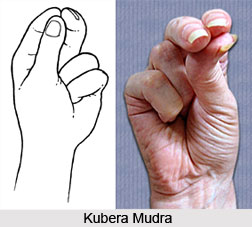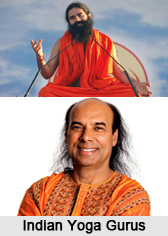 Indian Yoga Guru connects himself with people from all religions and spread the Yogic knowledge in the masses. The enlightened people who teach the techniques of Yoga to common people are known as "Yoga Gurus" and they also work for attaining total control over the Self. The Yoga Gurus play a pivotal role in teaching the art of living and also make Yoga comprehensible to the common people. They teach Yoga to their descendents and also instruct them to further disseminate the knowledge to the common people. However, there are a few Indian Yoga Gurus who are also recognised as a spiritual leader.
Indian Yoga Guru connects himself with people from all religions and spread the Yogic knowledge in the masses. The enlightened people who teach the techniques of Yoga to common people are known as "Yoga Gurus" and they also work for attaining total control over the Self. The Yoga Gurus play a pivotal role in teaching the art of living and also make Yoga comprehensible to the common people. They teach Yoga to their descendents and also instruct them to further disseminate the knowledge to the common people. However, there are a few Indian Yoga Gurus who are also recognised as a spiritual leader.
During the ancient times, the sages and saints were used to teach the methodology of Yoga to the people. Yoga is one of the most ancient physical and mental disciplines that originated in India and is in practise for the past several centuries. The Indian Yoga Gurus in modern times have helped a lot in the resurgence of ancient yoga practice. However, in modern times there are many people who specialises in Yoga to become Yoga Gurus.
Role of Indian Yoga Gurus
The Yoga Gurus play a crucial role in improving the quality of living and also in solving various lifestyle related problems through Yoga. The Gurus also teach the common people how to make use of Yoga for an improved life. People often go to the Yoga Gurus for seeking peace and calmness through Yoga and also for attaining total control over their Self. They are actually like friend, guide and philosophers to their disciples and lead them to enlightenment.
Famous Indian Yoga Gurus
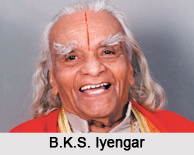 There are several Indian Yoga Gurus who have attained fame and recognition for their outstanding ways of teaching Yoga. They followed different methods for imparting Yoga education to the masses and have got significant success throughout their lives.
There are several Indian Yoga Gurus who have attained fame and recognition for their outstanding ways of teaching Yoga. They followed different methods for imparting Yoga education to the masses and have got significant success throughout their lives.
B.K.S. Iyengar is considered one of the most famous Indian Yoga Gurus. He learnt Yoga from Shri T. Krishnamacharya and later, wrote many books on Yoga. He also founded the Ramamani Iyengar Memorial Yoga Institute to pay tribute to his late wife.
Another famous Yoga Guru was Bikram Choudhury. He is probably the most popular name among the Yoga Gurus and he propounded a new form of Yoga, known as "Bikram Yoga". Bikram Yoga is actually the combination of Hatha Yoga and it is taught in more than 400 centres all over the world.
Patanjali was probably the most successful and recognised Indian Yoga Guru. He is referred as to the re-definer of Yoga and he is also the compiler of Yoga sutra. Patanjali"s Yoga Sutra contains the metaphysical and earthly connection through the process of Yoga and his method of Yoga teaching is followed quite extensively around the world.
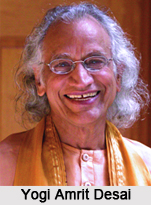 The founder of Siddha Yoga, a new religious movement, Swami Muktananda was one of the most prominent Indian Yoga Gurus.
The founder of Siddha Yoga, a new religious movement, Swami Muktananda was one of the most prominent Indian Yoga Gurus.
The other famous Indian Yoga Gurus include Sri Chinmoy, Swami Jyotirmayananda, Swami Rama (founder of the Himalayan Institute of Yoga Science and Philosophy), Swami Rama Tirtha, Swami Sacchidananda, Swami Satyananda Saraswati, Swami Sivananda (founder of Divine Life Society), Swami Venkatesananda, Swami Vishnudevananda (founder of International Sivananda Yoga Vedanta Centres and Ashramas), T.K.V. Desikachar, Yogi Amrit Desai, Paramhansa Yogananda, Sri T. Krishnamacharya, K. Pattabhi Jois, etc.
In the recent years, the Indian Yoga Gurus like Swami Ramdev, Suneel Singh, Bharat Thakur, Shri Shri Ravi Shankar, and several others have earned significant recognition worldwide. They are working hard for popularising Yoga all over the world they have established their own organisations for serving the purpose.
The Indian Yoga Gurus have played a significant role in popularising Yoga all over the world and also in spreading the light of Yoga education among the common people. Many of them established their own method of teaching Yoga and also founded institutions so that their disciples can carry on their work, even after their death.


